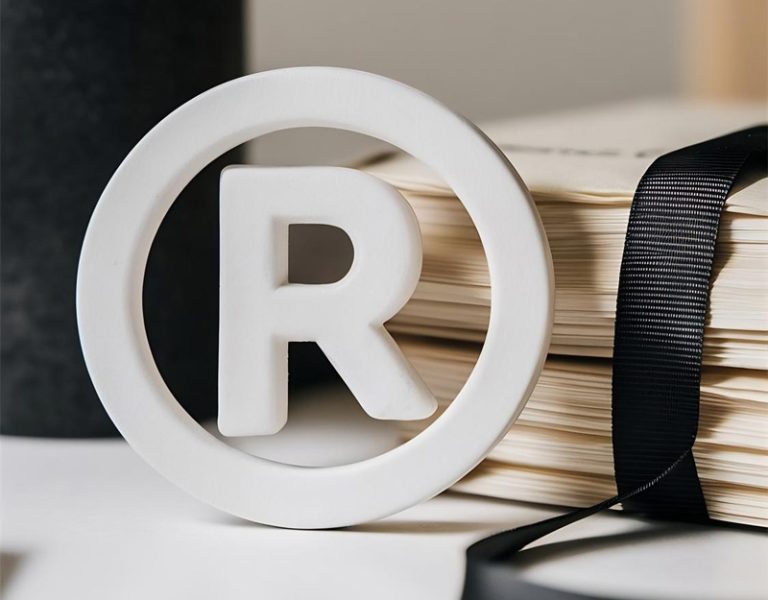Do you think legal disputes usually begin in courtrooms? No, they often start before specialized administrative committees, where regulatory and commercial conflicts are resolved before escalating to the judiciary.
With the evolution of regulations in the Kingdom and the expanding powers of administrative bodies, these committees have become key venues for settling disputes between companies and governmental or regulatory entities, particularly in sectors such as zakat and taxation, competition, telecommunications, securities, and others. But when should your company turn to them? And how can you protect your rights without getting lost in procedural complexities?
In this article, we explore how companies can navigate administrative committees with legal intelligence and outline the key steps to safeguarding regulatory rights within Saudi Arabia’s modern legal framework.
What is Litigation?
Litigation is the legal process that parties resort to to resolve an existing dispute after failing to reach an amicable settlement. It involves filing a case before judicial authorities or specialized committees, where evidence and legal arguments are presented to obtain a ruling that grants justice to the rightful party or determines liability.
Litigation is a fundamental means of achieving justice and protecting rights within the legal system, whether in civil, commercial, or administrative disputes. It often requires appointing a licensed lawyer to handle the legal procedures efficiently and systematically.
Litigation Procedures
Litigation procedures in Saudi Arabia are characterized by clarity and organization to ensure justice is achieved. They extend across several key stages, beginning with the filing of a lawsuit and ending with the final judgment or its execution.
Main Stages of Litigation Procedures:
1. Filing the lawsuit: The plaintiff submits a statement of claim electronically through the Ministry of Justice’s “Najiz” portal to the competent court, specifying the subject of the dispute and the legal claims.
2. Case registration and notification: The case is registered, and the defendant is notified of the hearing date and the subject of the claim, allowing them to defend and respond.
3. Court hearings: Hearings are held where both parties present evidence and legal arguments. The court then issues a preliminary judgment based on the facts.
4. Appeal: If either party is dissatisfied with the judgment, they may submit an appeal memorandum within a specific period (usually 30 days). The Court of Appeal then reviews the case anew.
5. Cassation (Supreme Court review): This is the final stage of appeal, where the Supreme Court reviews the judgment.
Parties’ Rights:
Both the plaintiff and the defendant have guaranteed rights, such as access to case files, the ability to submit evidence, defend, and appeal, ensuring fairness and equality.
Digital Transformation:
Platforms such as Najiz facilitate litigation procedures electronically, reducing time and effort while ensuring transparency and fairness throughout the judicial process.
Litigation System
The litigation system in Saudi Arabia is a modern legal framework that governs how judicial disputes are handled. It stands out for several key features and advantages compared to litigation systems in other countries, making it a strong environment for protecting rights and ensuring justice efficiently.
Key Features of the Saudi Litigation System:
1. Based on Islamic Sharia:
The Saudi judicial system is primarily founded on the principles of Islamic Sharia, which guarantee justice and fairness, emphasizing verification and ensuring that every individual receives their rightful due.
2. Three Judicial Levels:
The system includes Courts of First Instance, Courts of Appeal, and the Supreme Court, providing opportunities for appeal and review to ensure accurate and fair rulings.
3. Advanced Electronic Procedures:
The Najiz electronic litigation platform offers speed and ease in filing cases, managing documents, and attending sessions, reducing time while increasing efficiency in the litigation process.
4. Efficiency and Speed of Proceedings:
Commercial and judicial courts in Saudi Arabia provide relatively swift procedures compared to some other systems, with the ability to issue immediate rulings in many commercial and administrative cases.
5. Integrity and Transparency:
Strong mechanisms are in place to ensure the integrity of the judiciary and the transparency of judgments, including judicial oversight and channels for reviewing legal decisions.
6. Business-Friendly Environment:
The system focuses on protecting the rights of investors and companies, with judges specialized in commercial affairs to enhance understanding and resolution of business disputes efficiently.
7. Right to Appeal and Legal Representation:
The system grants litigants the right to be represented by a licensed lawyer for defense and to submit legal appeals, with clear legal timelines for challenging judgments.
The New Litigation System and Its Impact on Companies
Saudi Arabia’s new Litigation System (2025) brings significant positive effects for companies. It represents a major step toward modernizing the judicial environment and reducing the legal risks that institutions may face in disputes.
Understanding the Amendments and Their Impact on Companies
1. Full Digital Transformation:
The new system is built around the Najiz electronic litigation platform, which allows filing lawsuits, submitting memoranda, attending hearings, and tracking cases online. This reduces time and effort, minimizes procedural delays, and is especially crucial for companies that need swift resolutions to mitigate risks.
2. Clear Timeframes:
The updated laws introduce strict timelines for each litigation stage, ensuring faster justice and preventing delays in issuing judgments. This reduces periods of legal uncertainty that can negatively impact business operations.
3. Specialized Courts:
The launch of dedicated courts such as the Commercial Court and the Labor Court ensures that company-related cases are handled more efficiently and with greater expertise, improving judgment quality and reducing risks stemming from misinterpretation or generalization.
4. Remote Hearings and Reduced Congestion:
The system enables remote (virtual) hearings, allowing company representatives and lawyers to participate easily. This saves time and minimizes disruptions to business operations, avoiding unnecessary costs.
5. Strengthened Corporate Confidence in the Judiciary:
By enhancing transparency and ensuring strict adherence to Sharia and legal standards, the system increases investors’ and business owners’ trust in the judiciary’s ability to protect their legal rights fairly and efficiently.
6. Simplified Legal Appeals:
The new system facilitates the electronic submission of claims and appeals while maintaining rigorous review mechanisms that protect companies from unfair or arbitrary rulings, further mitigating potential legal risks.
Impact of the New System on Reducing Legal Risks:
- Minimizes judicial delays that disrupt business continuity.
- Provides a more stable and transparent legal environment for investors.
- Improves the quality of commercial case rulings through court specialization.
- Enhances adaptation to digital transformation and raises the efficiency of legal processes.
Litigation Procedures Before Labor Courts and How Companies Can Avoid Common Mistakes
Litigation procedures before labor courts in Saudi Arabia follow a structured legal process designed to maintain balance between the rights of employees and employers. The system ensures effective legal protection for companies and facilitates the swift and fair resolution of disputes.
Steps and Procedures of Labor Court Litigation
1. Filing the Claim Electronically:
The process begins by submitting the labor claim through the Najiz portal of the Ministry of Justice, along with all supporting documents such as employment contracts, payroll records, and any correspondence proving the dispute.
2. Amicable Settlement Stage:
The claim is automatically referred to the Amicable Settlement Office under the Ministry of Human Resources, where reconciliation sessions are held within a maximum of 21 working days. The goal is to reach a mutually satisfactory settlement without proceeding to court.
3. Referral to the Court:
If the settlement attempt fails, the case is referred to the competent labor court, which schedules hearings, reviews defenses, and examines the evidence.
4. Court Hearings:
During the hearings, both parties exchanged memoranda and legal arguments. Sessions are held in accordance with the Law of Pleadings before Sharia Courts, and the judge issues a final judgment based on the presented evidence.
5. Appeal and Reconsideration:
The aggrieved party may file an appeal within the legal period (usually 30 days) or submit a petition for reconsideration. The process includes clear procedures that ensure companies’ right to defend themselves.
Common Mistakes Companies Should Avoid
- Failure to attach complete supporting documents leads to weak evidence and undermines the case.
- Delays in submitting evidence or objections can negatively impact case progress and court decisions.
- Relying solely on judicial solutions without attempting amicable settlement: Prolongs litigation and increases costs.
- Missing legal deadlines for appeals or objections: May result in losing the company’s legal rights.
- Lack of proper legal representation: It is always advisable to appoint a lawyer specialized in labor cases to ensure full protection of the company’s rights.
Ṣada Law Firm stands out as a specialized legal entity that combines deep expertise with a thorough understanding of modern Saudi legal systems. The firm is committed to delivering high-quality legal consultations and professional representation before judicial authorities with full integrity and precision. Its proactive and meticulous approach is not just a work method; it is a promise to minimize risks and protect the rights of both companies and individuals. In an ever-evolving Saudi legal landscape, Ṣada Law Firm remains the trusted partner that ensures your organization stays ahead and secure.






